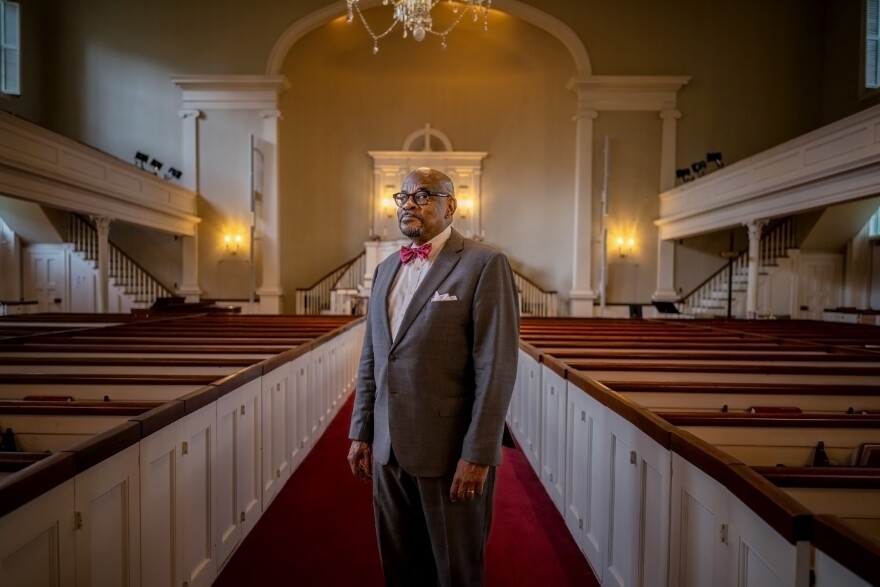Dr. Stephen Ray Jr. remembers in the early '90s being told to use gloves to touch a man dying of AIDS, for fear of getting infected.
Ray took a look at a box of gloves set on a table, near the man as he raised his hand.
“I just grasped his hand,” Ray said. “And Ralph said, ‘You're the first person who has touched me in six months.”
Ralph died soon before a life saving antiviral cocktail became widely available, Ray said. But the experience helped shape his belief that religion needed to connect with the present realities of marginalized people while also centering them.
That belief has now led him to become the first African American senior pastor at the United Church on the Green in New Haven. He was installed at a recent Sunday service before a group of parishioners. The church, famed for its role in the abolition movement and the Amistad Case, will build on that legacy of inclusiveness, Ray said.
Ray has big ideas for church outreach.
“I'm going to be doing substantial ministry with folks who find themselves on the margins because of their sexual identity,” Ray said.
His commitment to LGBTQI+ outreach made him an attractive candidate for the role, according to Roger Adams. Adams, who is a longtime member of the church, led the search for a new pastor. The church states its ongoing advocacy work for racial equality and justice.
But it took longer to accept LGBTQI+ people. Its website states the church began to openly welcome them in 1989.
Ray's welcoming philosophy, Adams said, makes the difference.
“One of the things that makes him very attracted to us, the size, the potential, was his clear commitment to welcoming every person and wasn't just concerned about making sure we were a multiracial congregation.”
Ray got his start as a minister during the 1980s during the height of the AIDS epidemic. He said he walked by a Catholic cemetery on the border between Bloomfield and Hartford during those days, rows of low tombstones over graves containing the bodies of those who died of AIDS.
Those experiences later influenced his belief that church is a place of comfort, not judgment. But getting people to church is another issue.
Kentavis Brice is a member of the Southern New England Conference of the United Church of Christ, a historically progressive Protestant denomination. He said the church could be more welcoming to the LGBTQI+ community.
The church could stand to literally meet people where they are, he said.
“I'm talking about community centers, clubs, even entertainment spaces and places where we all frequent, but sometimes we don't see the progressive religious voice there,” Brice said.
The gradual acceptance of different peoples is also reflected in the church’s history. United Church on the Green was founded in 1742. A congregant who was an attorney defended slaves who revolted and took over the Amistad slave ship.
But Adams said that in the beginning, the church wasn’t inclusive to African American congregants.
“Unfortunately, we're not proud to say, they were only allowed to sit in the balcony,” Adams said.
Now Ray will preach that faith belongs to all those who seek it, no matter who they are.
“We give this to you, and it becomes yours. And we will do everything we can so that it can be a sustaining faith and a sustaining hope.”





